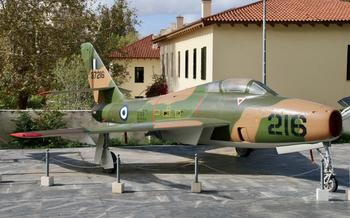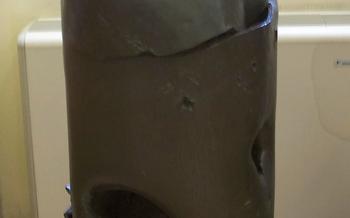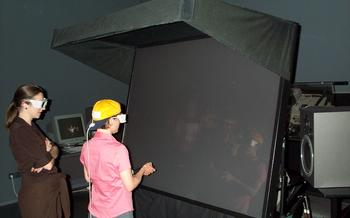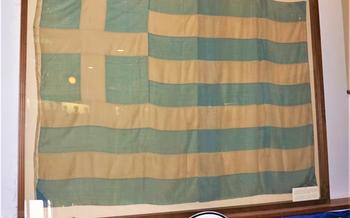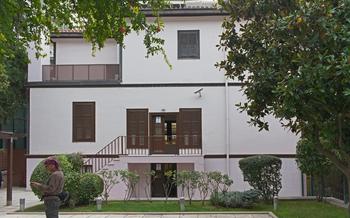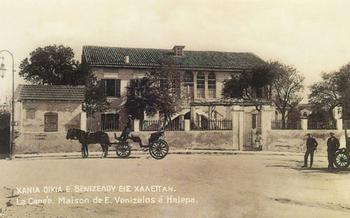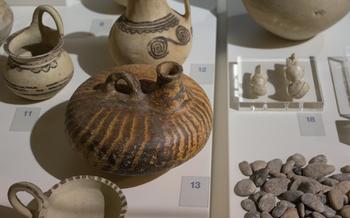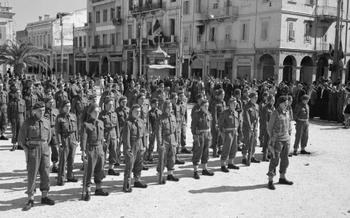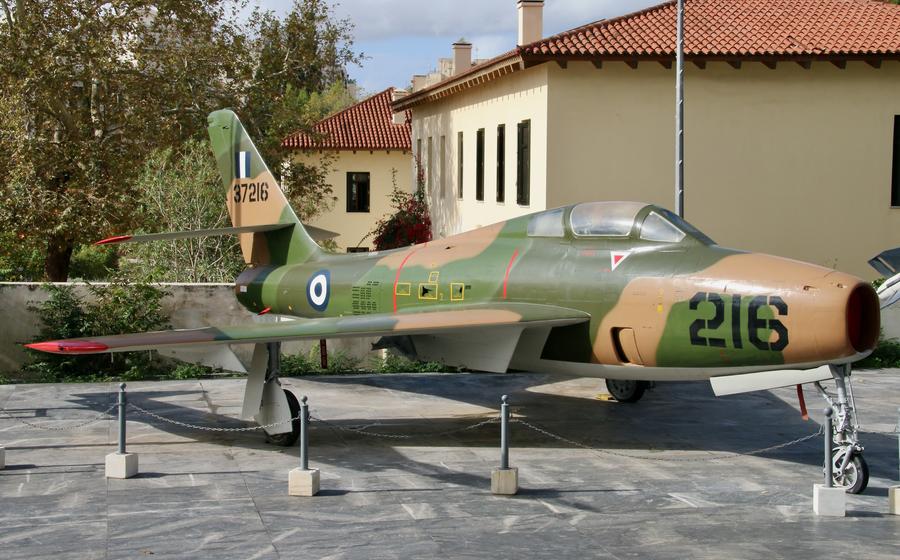
Athens War Museum
- Unveiling Athens War Museum: A Journey Through Greek Military History
- Exploring the Galleries: A Tapestry of War Artifacts
- The Balkan Wars: A Crucible of Conflict
- World War I: Greece's Role in the Global Conflict
- The Asia Minor Campaign: Dreams and Disasters
- World War II: Greece Under Occupation and Resistance
- The Greek Civil War: A Post-War Conflict
- Interactive Exhibits: Bringing History to Life
- Educational Programs: Engaging the Minds of Tomorrow
- Commemorative Events: Honoring the Past
- Research Center: Delving into the Depths of History
- Museum Shop: A Treasure Trove of Historical Souvenirs
- Accessibility and Facilities: Ensuring a Welcoming Environment
- Insider Tip: Experiencing the Museum Like a Local
Unveiling Athens War Museum: A Journey Through Greek Military History
Nestled in the heart of Athens, the Athens War Museum stands as a testament to the rich military history of Greece. Founded in 1975, the museum houses an impressive collection of artifacts, uniforms, weapons, and personal belongings that narrate the country's involvement in major conflicts from the Balkan Wars to World War II and the Greek Civil War. Its strategic location, adjacent to the National Archaeological Museum, makes it easily accessible to both locals and tourists alike.
The museum's architectural design is a blend of traditional and modern elements, with a neoclassical façade and contemporary interior spaces. The layout is well-organized, with galleries dedicated to specific wars and conflicts, allowing visitors to follow a chronological journey through Greek military history. Each gallery features interactive displays, multimedia presentations, and detailed descriptions that provide a comprehensive understanding of the events and their significance.
Exploring the Galleries: A Tapestry of War Artifacts
Delving into the labyrinthine galleries of the Athens War Museum is akin to embarking on a journey through time, where the echoes of battles and the whispers of history intertwine. The museum's collection, a testament to the indomitable spirit of the Greek people, encompasses an array of artifacts that narrate the country's rich military past. From ancient swords and shields to modern-day firearms, the museum's weaponry collection traces the evolution of warfare throughout the centuries. Uniforms and personal belongings of soldiers, adorned with medals and insignia, offer poignant insights into the lives and sacrifices of those who fought for Greece's freedom. Dioramas, meticulously crafted with lifelike detail, recreate iconic battles and pivotal moments in Greek history, allowing visitors to experience the grandeur and tragedy of war up close.
The Balkan Wars: A Crucible of Conflict
The Athens War Museum dedicates a significant section to the Balkan Wars, a series of conflicts that engulfed the region from 1912 to 19These wars marked a pivotal moment in Greek history, as they expanded the country's territory and laid the foundation for its modern borders.
The museum's exhibits on the Balkan Wars provide a comprehensive overview of the historical context, causes, and major battles of these conflicts. Through artifacts, documents, and interactive displays, visitors can explore the motivations and strategies of the various belligerents, as well as the impact of the wars on the region's political and social landscape.
One of the highlights of this section is a diorama depicting the Battle of Sarantaporo, a decisive Greek victory that secured the country's control over Thessaly. Visitors can also examine uniforms, weapons, and personal belongings of Greek soldiers who fought in the Balkan Wars, gaining a deeper understanding of their experiences and sacrifices.
The Balkan Wars had a profound impact on Greece, shaping its territorial boundaries, national identity, and geopolitical position. The Athens War Museum's exhibits on this period offer a valuable opportunity to delve into this complex and fascinating chapter of Greek history.
World War I: Greece's Role in the Global Conflict
Greece's involvement in World War I initially stemmed from its strategic position as a gateway to the Balkans and the Mediterranean Sea. However, the decision to join the Allied Powers was also driven by a desire to reclaim lost territories and fulfill national aspirations.
Greece's contributions to the war effort were significant. Its army fought alongside Allied forces on the Macedonian front, engaging in major battles such as the Battle of Doiran and the Battle of Skra-di-Legen. The Greek navy played a crucial role in securing the Aegean Sea and supporting Allied naval operations.
The war took a heavy toll on Greece. Thousands of Greek soldiers lost their lives, and the country's economy suffered. However, Greece emerged from the conflict with its territorial claims largely satisfied and its status as a regional power enhanced.
The Athens War Museum houses a wealth of artifacts and exhibits that shed light on Greece's role in World War I. Visitors can trace the country's journey from neutrality to active participation, exploring the challenges and sacrifices faced by Greek soldiers and civilians. Personal accounts, uniforms, weapons, and interactive displays bring the era to life, offering a poignant glimpse into the complexities and consequences of this global conflict.
The Asia Minor Campaign: Dreams and Disasters
The Asia Minor Campaign, also known as the Greco-Turkish War of 1919–1922, was a pivotal chapter in Greek history, marked by both dreams of territorial expansion and the eventual disaster that ensued. Driven by irredentist sentiments and fueled by the Allied victory in World War I, Greece sought to reclaim its historical lands in Asia Minor.
The campaign began with initial successes as Greek forces advanced deep into Anatolia, capturing the ancient city of Smyrna (modern-day Izmir). However, the Turkish nationalist movement under Mustafa Kemal Atatürk fiercely resisted the Greek invasion, leading to a series of bloody battles and a grueling stalemate.
The turning point of the campaign came in 1922 when Atatürk's forces launched a counteroffensive, routing the Greek army and driving them back towards the coast. The Greek retreat turned into a chaotic rout, resulting in the burning of Smyrna and the forced exodus of the Greek population from Asia Minor.
The aftermath of the Asia Minor Campaign was devastating for Greece, both in terms of human life and territorial losses. The defeat led to a political crisis and the abdication of King Constantine I, as well as the rise of Eleftherios Venizelos, who returned from exile to lead the country through this tumultuous period.
The exhibits at the Athens War Museum dedicated to the Asia Minor Campaign showcase the complexities of this ill-fated endeavor, providing insights into its origins, battles, and consequences. Through artifacts, photographs, and personal accounts, the museum invites visitors to explore this chapter of Greek history, which shaped the nation's identity and left a lasting legacy.
World War II: Greece Under Occupation and Resistance
The Axis invasion of Greece in 1941 marked a dark chapter in the country's history. The Athens War Museum vividly portrays the struggles of the Greek people during the occupation, showcasing artifacts that tell the story of resistance and resilience. Visitors can see weapons, uniforms, and personal belongings of Greek soldiers, as well as documents and photographs that chronicle the heroic efforts of the resistance movement.
One of the highlights of this section is a diorama depicting the Battle of Crete, a fierce struggle between Greek and Allied forces against German paratroopers. The museum also sheds light on the tragic consequences of the occupation, including the devastating famine that claimed the lives of thousands of Greeks. Through its exhibits, the museum honors the memory of those who fought and suffered during this tumultuous period.
The Greek Civil War: A Post-War Conflict
The Athens War Museum also delves into the complexities of the Greek Civil War, which erupted in the aftermath of World War II. This bitter conflict, fought between communist and anti-communist forces, left a deep scar on the nation's psyche. The museum presents a comprehensive overview of the civil war, exploring its historical context, major battles, and lasting impact.
Artifacts and exhibits showcase the struggles of the Greek people during this turbulent period. Visitors can learn about the motivations of both sides, the strategies they employed, and the devastating consequences of the war. Personal accounts and testimonies from veterans provide a poignant glimpse into the human toll of the conflict.
The Greek Civil War remains a sensitive topic in Greece, and the museum handles it with sensitivity and objectivity. By presenting multiple perspectives and encouraging visitors to engage in critical thinking, the museum aims to promote reconciliation and understanding.
Interactive Exhibits: Bringing History to Life
The Athens War Museum takes pride in its engaging and interactive exhibits, designed to bring the past to life for visitors of all ages. Multimedia presentations and interactive displays offer a multisensory experience that captivates the senses and enhances the learning process. Visitors can immerse themselves in virtual reality experiences and simulations, stepping into the shoes of soldiers and experiencing the realities of war firsthand. Hands-on activities provide a deeper understanding of military strategies, tactics, and the impact of war on individuals and communities. These interactive elements transform the museum into a dynamic and engaging space, encouraging visitors to explore, learn, and connect with the stories of Greek military history.
Educational Programs: Engaging the Minds of Tomorrow
The Athens War Museum recognizes the importance of educating future generations about the rich military history of Greece. To this end, the museum offers a range of educational programs designed to engage students of all ages. Guided tours and workshops are conducted by experienced educators who bring history to life through interactive storytelling and hands-on activities. These programs cater to different grade levels and curricula, ensuring that students gain a comprehensive understanding of Greece's military past.
In addition, the museum provides teachers with educational resources and materials to enhance their lessons on Greek history. These resources include lesson plans, worksheets, and multimedia presentations that can be easily integrated into the classroom. By fostering critical thinking and historical awareness, the Athens War Museum plays a crucial role in shaping the minds of tomorrow's citizens.
Commemorative Events: Honoring the Past
The Athens War Museum not only serves as a repository of historical artifacts but also as a platform for commemorating significant events and anniversaries related to Greece's military history. Throughout the year, the museum organizes and hosts a variety of commemorative ceremonies, events, and public lectures. These events provide an opportunity for visitors to pay tribute to the sacrifices made by Greek soldiers and civilians during times of war and conflict.
One of the most significant commemorative events is the annual Remembrance Day ceremony, held on October 28th. This ceremony honors the memory of all Greek soldiers who have fallen in battle, particularly those who fought during World War II. Wreaths are laid at the Tomb of the Unknown Soldier, and speeches are given by government officials, military leaders, and veterans.
In addition to Remembrance Day, the museum also organizes events to commemorate specific battles and historical anniversaries. These events may include lectures by historians, panel discussions, and exhibitions of artifacts related to the event being commemorated. These events provide an opportunity for visitors to learn more about key moments in Greek history and their impact on the country's development.
By participating in these commemorative events, visitors can gain a deeper understanding of Greece's military history and the sacrifices made by its people. These events offer a chance to reflect on the past, honor the fallen, and foster a sense of national pride and unity.
Research Center: Delving into the Depths of History
The Athens War Museum houses a comprehensive research center that serves as a hub for scholarly exploration and historical inquiry. It encompasses an extensive collection of books, documents, photographs, and artifacts, meticulously curated to provide researchers with a wealth of resources for their studies. The center's holdings cover a wide range of topics related to Greek military history, from the ancient world to the present day.
Researchers can delve into the complexities of the Balkan Wars, unravel the strategies and tactics employed during World War I, and gain insights into the motivations and consequences of the Asia Minor Campaign. The center also houses a vast collection of documents and artifacts pertaining to World War II, the Greek Civil War, and other significant conflicts.
The research center is not only a valuable resource for scholars but also a platform for collaboration and knowledge exchange. It hosts conferences, workshops, and seminars, bringing together experts from diverse fields to share their research findings and engage in thought-provoking discussions. Through these initiatives, the museum fosters a vibrant community of scholars dedicated to advancing the study of Greek military history.
Museum Shop: A Treasure Trove of Historical Souvenirs
The Athens War Museum's shop is a treasure trove for history enthusiasts and souvenir seekers alike. Here, visitors can delve into a diverse collection of books, postcards, and replicas of artifacts, each telling a unique story about Greece's military past. From comprehensive historical texts to beautifully illustrated children's books, the museum shop offers a wealth of knowledge and insights into Greece's rich military heritage.
Beyond the printed word, the shop also features a range of traditional Greek handicrafts and souvenirs. Visitors can find intricate ceramic pieces, handwoven textiles, and replicas of ancient Greek jewelry, all crafted with care and precision. These souvenirs serve as tangible reminders of Greece's vibrant culture and enduring traditions.
Proceeds from the museum shop play a crucial role in supporting the museum's educational and research initiatives. By purchasing a souvenir, visitors not only take home a piece of Greek history but also contribute to the preservation and promotion of this invaluable institution.
Accessibility and Facilities: Ensuring a Welcoming Environment
The Athens War Museum is committed to providing a welcoming and accessible environment for all visitors. The museum is fully wheelchair accessible, with ramps and elevators connecting all levels. Multilingual audio guides are available in several languages, and signage throughout the museum is also multilingual. For those who prefer a guided experience, the museum offers tours in English and Greek.
For the convenience of visitors, the museum provides restrooms, lockers, and a café. The café offers a range of light refreshments, including sandwiches, salads, and drinks. It's a great place to take a break, refuel, and discuss the exhibits you've seen.
The museum's staff is friendly and helpful, and they are always on hand to answer any questions you may have. Whether you're a history buff, a casual visitor, or someone with a personal connection to the military, you're sure to have an enriching and enjoyable experience at the Athens War Museum.
Insider Tip: Experiencing the Museum Like a Local
To truly delve into the heart of the Athens War Museum, it's essential to approach it with the spirit of a local. Avoid the crowds by planning your visit for a weekday morning, when you'll have the galleries practically to yourself. As you wander through the exhibits, keep an eye out for hidden gems that often go unnoticed by the casual visitor. Don't miss the small room dedicated to the Greek Resistance during World War II, where you'll find poignant personal artifacts and stories of heroism.
After your visit, immerse yourself in the local culture by exploring the surrounding neighborhood. Just a short walk away, you'll find a plethora of traditional Greek tavernas and cafes, where you can savor delicious cuisine and engage in lively conversations with the locals. Indulge in a hearty plate of souvlaki or moussaka, sip on a refreshing glass of ouzo, and let the flavors and aromas transport you to the heart of Athens.
